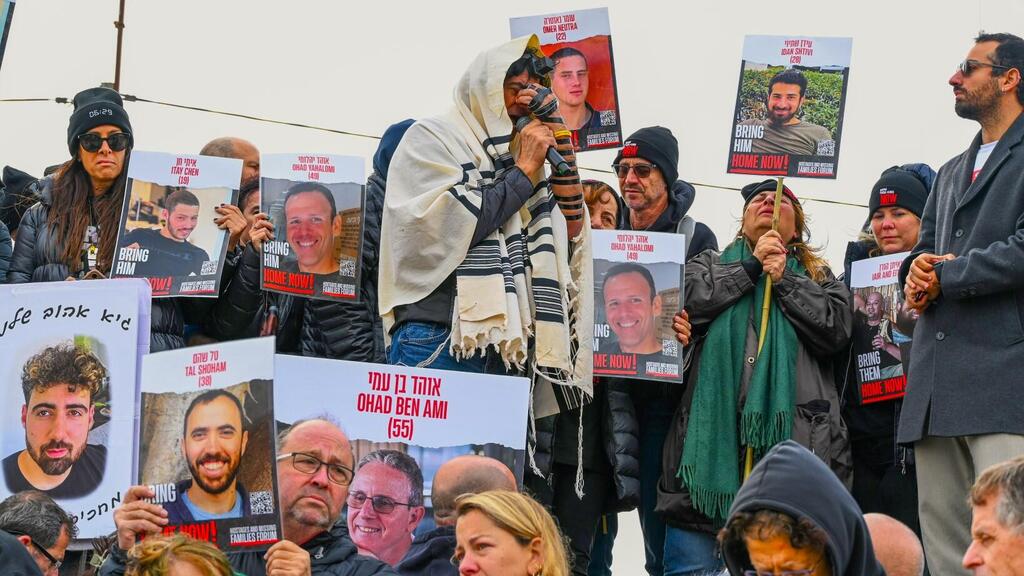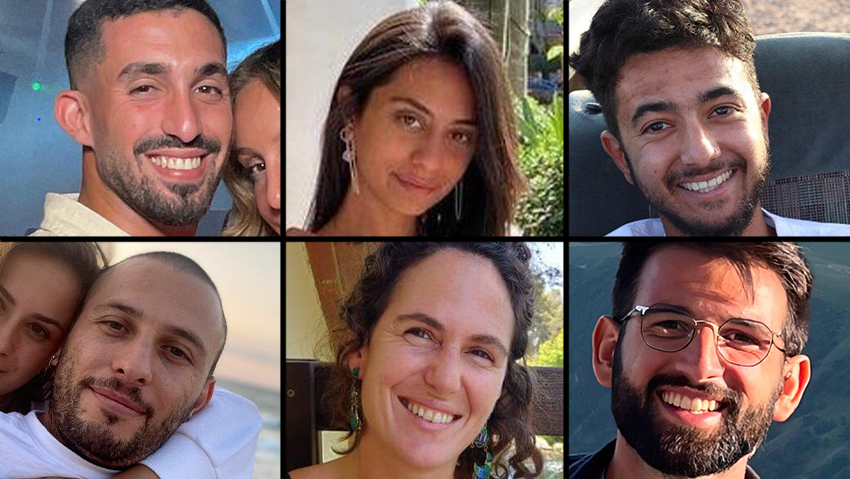Getting your Trinity Audio player ready...
It seems that Yahya Sinwar could not have dreamed of such success: the execution of hostages with shots to their heads leads to a paralyzed Israeli economy and public anger toward the government, while he emerges unscathed.
No matter what he does – every monstrous and inhumane act – Israel's public demands that he be given more incentives to harden his positions. Since January, he has systematically undermined every opportunity for a deal, the full details of which have never been disclosed to the public, which seems so eager to surrender to him.
2 View gallery


From the Incomplete photography exhibition for the return of the hostages
(Photo: Paulina Fatimer)
In the depths of the earth, in the terror tunnels where he holds our sons and daughters, Sinwar knows they are his lottery ticket and he will not relinquish them. Once again, he divides Israeli society and manages to fragment it through futile negotiations over a small portion of the hostages that he might, ostensibly, release.
Does he now have reason, after watching the news broadcasts and the statements from opposition politicians and Histadrut leader Arnon Bar-David, to change his approach? Is this what will crack his cruel heart and prompt him to fold and return the hostages? Anyone who believes so is naive; his hatred for Netanyahu and the government blinds him to any possibility of reconsideration, and it is deeply saddening.
It is astonishing that neither Nasrallah nor even Sinwar has managed to disrupt Ben Gurion Airport for more than a few hours. Even in the "three-hour war" last week, they failed to achieve what Arnon Bar-David of the Histadrut provided them in exchange for a few more bullets in the heads of our hostages. The righteous and just anger of all of us is not being directed by the Hostages and Missing Families Forum toward Sinwar, nor is there a demand for the government to exact a price from him and the terrorists imprisoned in Israel. There isn’t even a call to stop the relentless aid in food, fuel and equipment to Hamas in Gaza, where our sons and daughters are held.
Criticism of the government is legitimate. The anger and frustration over the loss of strategy and direction are palpable. For nearly a year, we have faced a leadership headed by Prime Minister Benjamin Netanyahu and Defense Minister Yoav Gallant, who have been unable to clearly outline the war's objectives beyond outdated statements that lost their value months ago.
2 View gallery


From top left: Ori Danino, Eden Yerushalmi, Hersh Goldberg-Polin, Alex Lobanov, Carmel Gat and Almog Sarusi
(Photo: Courtesy)
The two leaders are mired in indecision, unable to make bold decisions or face the public with courage and honesty to present the various costs and clarify Hamas’ demands and their implications. What practical, tactical and strategic proposals do they intend to bring?
In the absence of such proposals and in the face of such a vast vacuum, frustration and distrust breed political figures like Bar-David and his allies who exploit the opportunity for political battles at the expense of the hostages. Even if their concern for the hostages is genuine, their actions are destructive and dangerous to the hostages' lives and Israeli society.
 Yair Kraus
Yair KrausThis crisis is not limited to Netanyahu’s opponents. It is undoubtedly fueled and sustained almost daily by some government ministers who enjoy adding fuel to the Israeli disintegration. At such a time, there are countless reasons to oppose the government – seeing the devastation of the North and the loss of hope and future there, against a backdrop of imagined rehabilitation systems that fail to properly rebuild the region’s infrastructure – calling for protest and demands for change.
But the hostages should not be used as a tool for this. And certainly, pressuring the government to capitulate to any deal at any cost, just for some of them, will not bring the hostages back alive.


